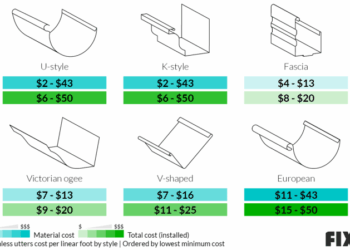Delving into the realm of finance tools for small businesses in 2025, this opening paragraph aims to captivate and engage readers, providing a glimpse into the future of financial management.As we navigate through the evolving landscape of financial tools, it becomes crucial to stay informed about the latest trends and advancements that can shape the way businesses operate.
Overview of Finance Tools
Finance tools for small businesses refer to software or applications that help in managing financial tasks such as accounting, budgeting, invoicing, and financial reporting. These tools are designed to streamline financial processes and provide valuable insights to business owners.Using finance tools is crucial for small businesses as it helps in maintaining accurate financial records, monitoring cash flow, and making informed decisions.By automating repetitive tasks and reducing manual errors, finance tools enable businesses to save time and resources while improving overall efficiency.
Key Benefits of Utilizing Finance Tools for Small Businesses
- Improved efficiency: Finance tools automate financial processes, saving time and reducing the risk of errors.
- Better financial management: These tools provide real-time insights into the financial health of the business, helping in making informed decisions.
- Enhanced accuracy: By automating calculations and data entry, finance tools minimize the chances of human error in financial records.
- Cost savings: Utilizing finance tools can help in reducing costs associated with manual bookkeeping and financial management.
- Increased productivity: With streamlined financial processes, small businesses can focus on core operations and strategic planning.
Emerging Trends in Finance Tools
In the ever-evolving landscape of finance tools for small businesses, several trends are shaping the way companies manage their finances. These trends are not only relevant now but are also expected to have a significant impact on finance tools by 2025.
Integration of AI and Machine Learning
One of the key trends in finance tools for small businesses is the increasing integration of artificial intelligence (AI) and machine learning. These technologies are being used to automate repetitive tasks, improve accuracy in financial reporting, and provide valuable insights for better decision-making.
Rise of Blockchain Technology
Blockchain technology is gaining momentum in the finance industry, offering secure and transparent transactions. By 2025, we can expect more finance tools to leverage blockchain for processes such as invoicing, payments, and auditing, enhancing security and efficiency.
Shift towards Cloud-Based Solutions
Cloud-based finance tools are becoming increasingly popular due to their flexibility, scalability, and cost-effectiveness. By 2025, more small businesses are likely to adopt cloud-based solutions for managing their finances, enabling real-time access to data and seamless collaboration.
Focus on Data Analytics and Visualization
Data analytics and visualization tools are becoming essential for small businesses to gain valuable insights from their financial data. In the coming years, finance tools are expected to provide advanced analytics capabilities, enabling businesses to make data-driven decisions and forecast future trends accurately.
Top Finance Tools for Small Businesses in 2025
As technology continues to advance, the landscape of finance tools for small businesses is constantly evolving. In 2025, several key finance tools are projected to be essential for small businesses looking to streamline their financial processes and improve efficiency.
1. AI-Powered Financial Management Software
AI-powered financial management software is expected to play a significant role in 2025 for small businesses. These tools leverage artificial intelligence to automate tasks such as bookkeeping, expense tracking, and financial reporting. By analyzing data and providing actionable insights, AI-powered financial management software can help small businesses make informed financial decisions quickly and accurately
.
2. Blockchain Technology for Secure Transactions
Blockchain technology is anticipated to become increasingly important for small businesses in 2025. This decentralized and secure technology can streamline transactions, reduce costs, and enhance transparency. By utilizing blockchain technology, small businesses can ensure the security and integrity of their financial transactions, ultimately improving trust with customers and partners.
3. Cloud-Based Accounting Software
Cloud-based accounting software is already popular among small businesses, and its importance is expected to grow in 2025. These tools offer scalability, accessibility, and real-time financial data, allowing small businesses to manage their finances efficiently from anywhere. With features like automated invoicing, bank reconciliation, and financial reporting, cloud-based accounting software can significantly streamline financial processes for small businesses.
Integration of AI and Automation
AI and automation are revolutionizing the way small businesses manage their finances. By incorporating these technologies into finance tools, businesses can streamline processes, improve accuracy, and make more informed decisions.
Enhanced Financial Decision-Making
AI and automation play a crucial role in enhancing financial decision-making processes for small businesses. Here are some examples:
- Automated data entry and categorization: AI-powered tools can automatically extract data from invoices, receipts, and bank statements, categorize expenses, and update financial records in real-time.
- Forecasting and predictive analytics: AI algorithms can analyze historical data, identify trends, and provide accurate forecasts for cash flow, revenue projections, and budget planning.
- Risk management and fraud detection: AI can detect anomalies in financial transactions, flag suspicious activities, and help businesses mitigate risks and prevent fraud.
Impact on Financial Management
The integration of AI and automation in finance tools is reshaping the future of financial management for small businesses:
- Efficiency and cost savings: By automating repetitive tasks and leveraging AI for data analysis, businesses can reduce manual errors, save time, and lower operational costs.
- Improved decision-making: AI-driven insights enable businesses to make data-driven decisions, identify growth opportunities, and optimize financial strategies for long-term success.
- Competitive advantage: Small businesses that embrace AI and automation in finance gain a competitive edge by staying agile, adapting to market changes quickly, and driving innovation in their financial processes.
Ending Remarks
In conclusion, the landscape of finance tools for small businesses is constantly evolving, and staying ahead of the curve can significantly impact the success of a business. By embracing the latest tools and technologies, businesses can streamline their financial processes and drive efficiency in their operations.
FAQ Corner
What are some examples of top finance tools for small businesses in 2025?Some examples include AI-powered financial forecasting tools, blockchain-based payment systems, and automated expense tracking platforms.
How can finance tools benefit small businesses?Finance tools can help small businesses improve cash flow management, make informed financial decisions, and enhance overall operational efficiency.
Will AI and automation play a significant role in finance tools for small businesses by 2025?Absolutely. AI and automation are expected to revolutionize financial processes for small businesses, offering advanced analytics and streamlining repetitive tasks.











